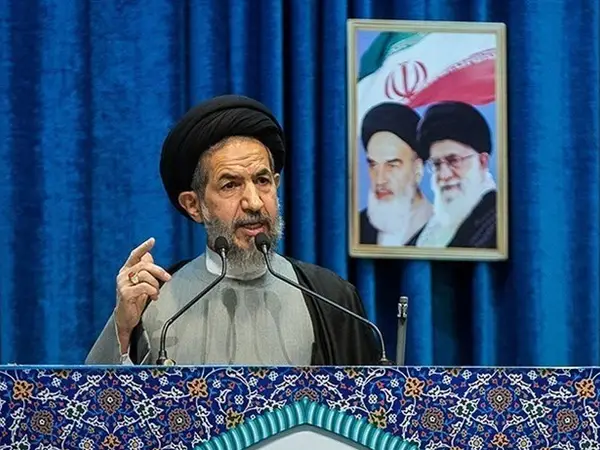In a rare moment of truth, Tehran Friday prayer leader Mohammad Hassan Abutorabi has said that the government has been losing its standing in the society.
Abutorabi's statement may possibly signal some kind of diversity in the rhetoric of Friday Prayer Imams, who in calmer times repeat a centrally crafted message to believers attending sermons on Fridays.
He advised government officials to behave based on ethical standards, as systematic financial corruption has become a characteristic of the Iranian government and its officials in recent years.
Abutorabi added that the officials' commitment to ethical standards is the only way to restore the government's lost social capital. Abutorabi's comments are in sharp contrast to remarks by other Friday Prayer leaders who have called on officials to tighten control over the society.
To highlight the difference in messaging recently, the Friday Imam in Mashad, Ahmad Alamolhoda has accused Iranian women who protest against compulsory hijab of being linked to foreign networks and the outlawed Mojahedin-e Khalq (MeK) opposition group. The hardliner Ahmad Khatami in Tehran on the same day thanked the Iranian judiciary for its quick verdict in issuing the death sentence for the 23-year-old protester Mohsen Shekari who was executed in Tehran December 8.
Meanwhile, Abutorabi criticized the government for wasting the country's gas and oil resources and paving the way for smuggling fuel out of Iran.
In another development, Hossein Marashi, the leader of the centrist pro-reform Executives of Construction Party has told a local website that "We should not sacrifice the country for the sake of one individual," adding that "We should attach priority to the people."
Most readers would have immediately assumed that he was speaking about the 83-year-old authoritarian ruler Ali Khamenei, but Marashi, probably realizing he might have gone too far, later underlined that he was referring to President Ebrahim Raisi, who is really not a major player amid the current crisis.
Speaking about the ongoing uprising in Iran, Marashi said: "This movement is fueled by the Islamic Republic's mistakes," adding that "We should not sacrifice the Islamic Republic for Raisi." He further explained that his party believes that "Current protests are the outcome of problems resulting from government officials' performance. Their performance has pushed the country to the point of explosion."
Marashi went on to say: "During the past five years, the county's usual 20% inflation rate increased to over 45% and at times to 60%. As far as foodstuffs are concerned, the inflation rate even reached 90%. The people are facing high inflation and high unemployment rates, and yet the government has not been doing anything about it."
He added: "Goods including medicine have become scarce and the people are angry and what the government did was ban social media and tighten compulsory hijab rules, which further angered the people. In foreign policy the government has been always creating tensions with the United States, Israel and Saudi Arabia."
He suggested that Iran should settle its disputes with Saudi Arabia and replace Ali Bagheri with Abbas Araqchi to conclude the differences over the nuclear deal with the United States as quickly as possible. "For how long we should wait for Raisi to solve the problems?" He asked.
Marashi also criticized the use of violence against protesters, which has resulted in about 500 deaths among civilians.
Marashi argued that 75 percent of Iranians are unhappy with the government's performance but only 5 percent take to the street. The government still has a chance to end the crisis, as long as this difference exists.
